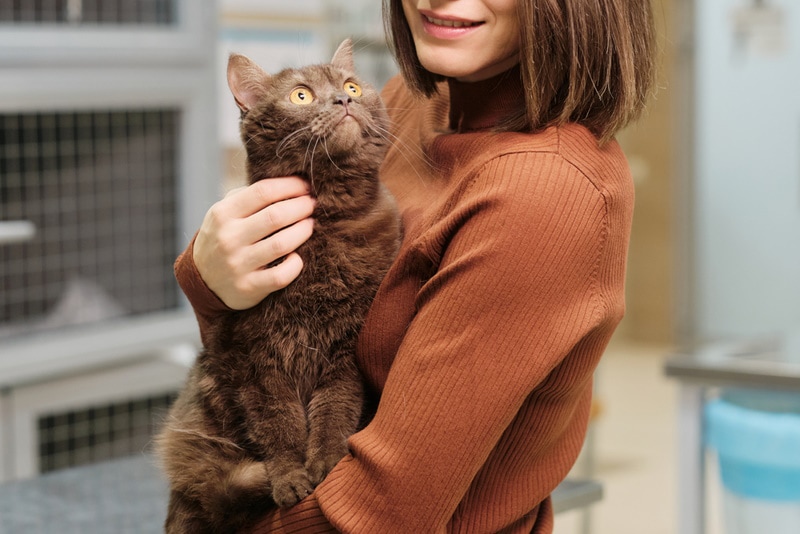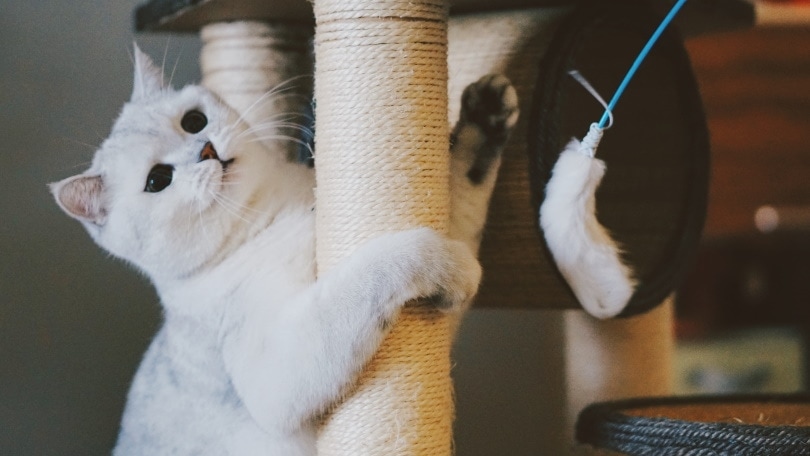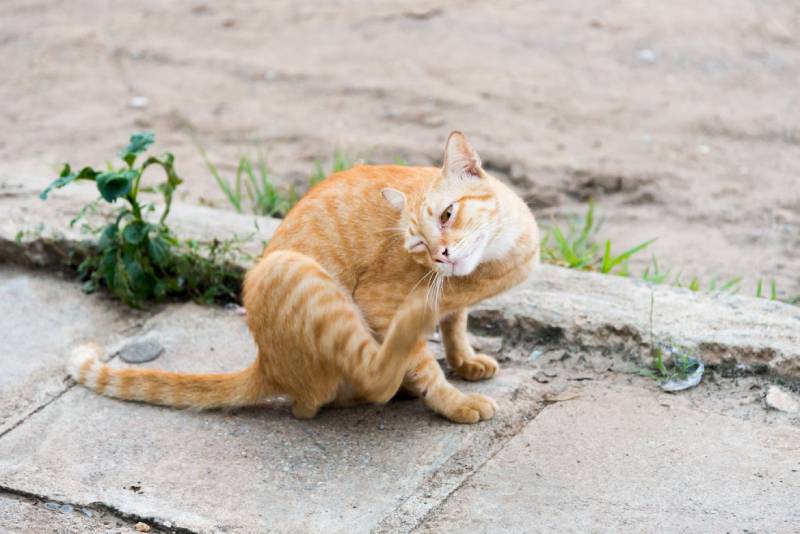10 Best Superfoods for Cats: Vet-Approved Tips to Keep Your Cat Healthy & Happy!

Updated on
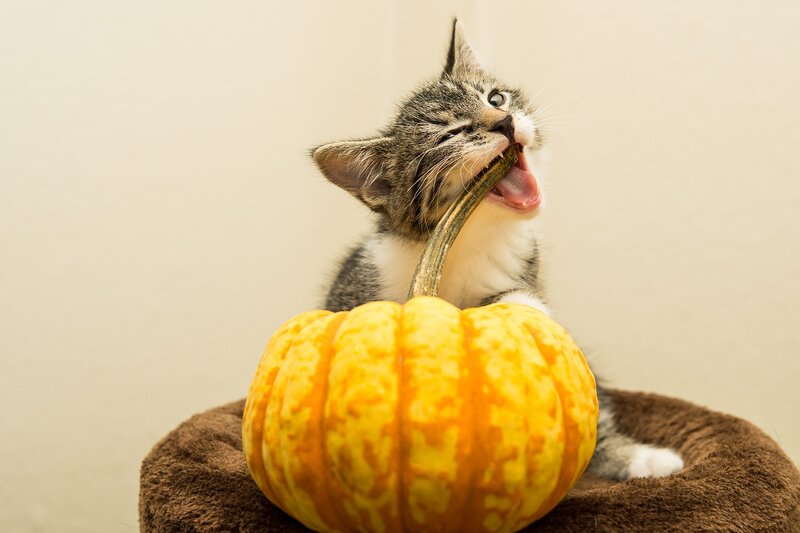
Managing a healthy diet for ourselves can be difficult enough, but when it’s our cat’s diet that we have to plan out, it’s even more challenging. While cats obtain most of their nutritional requirements from animal protein, they can still benefit from the boost that a few greens can give them.
Things to Remember for Cat Nutrition
If you’ve heard of the term “obligate carnivores” when it comes to cats, you might be wondering how they can eat vegetables and berries. The key is moderation. While cats obtain most of their nutritional requirements from animal protein, they can still benefit from the boost that a few greens can give them.
The superfoods we will list here, while safe for cats, should never make up the majority of your cat’s diet. They have their downsides, and too many can cause stomach upset, vomiting, and diarrhea. These foods should enhance an existing healthy diet rather than work alone.
The 10 Best Superfoods for Cats
1. Blueberries

Packed with powerful antioxidants, and fiber, blueberries have many benefits for your cat. Adding a few to your cat’s diet can help reduce free radical damage at the cellular level, preventing many disease processes and promoting good health and longevity. You might be surprised to know that blueberries are used in many high-quality, commercial cat foods!
Blueberries are very beneficial because they contain more antioxidants than any other fruit or vegetable, along with being low in calories. You can safely give these fruits to your cat without worrying about their weight.
2. Broccoli
While blueberries can be served raw, broccoli is best steamed when given to your cat. Softening the vegetable will make it easier for your kitty to digest. A source of antioxidants and fiber, broccoli is a great way to encourage regular gut motility and prevent constipation. It’s important to not give your cat too much broccoli, though. While the fiber content can help their digestion, too much can cause excessive gas and gastrointestinal distress.
3. Carrots

Like blueberries, carrots are used in many high-quality cat food recipes. Used in moderation, they are a fantastic add-on to your cat’s diet. Carrots can be offered raw and shredded or softened by boiling to prevent your cat from having issues digesting them.
Unlike us, cats can not convert beta carotenes into vitamin A. However, carrots are also loaded with lutein and zeaxanthin, two powerful antioxidants that protect the eye tissue structures supporting your cat’s eyesight. Therefore, we consider carrots a great superfood that can be offered to your cat in moderation to enhance their health and nutrition.
4. Cranberries
Well-loved among humans for their usefulness when it comes to urinary tract infections, cranberries offer the same support to cats. The antioxidants, vitamin C, and fiber all help promote your cat’s digestive, immune, and urinary health. While cats can synthesize their own vitamin C, a boost of vitamin C can be very helpful for cats struggling with disease processes.
5. Dandelion
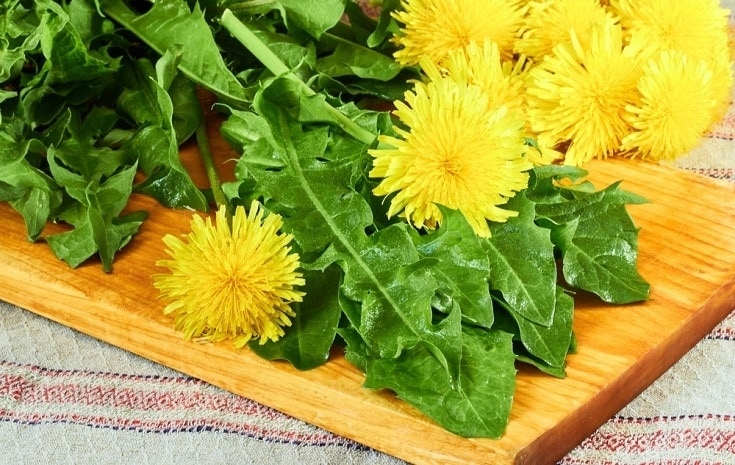
It might sound a little strange, but dandelions are a cheap way to boost your cat’s health if you see them nibbling on the grass in your garden. While dandelions might seem unassuming with their weed-like tendencies and bright yellow flowers, they can help your cats boost their nutrition, and they are also known to support and strengthen the liver, having a positive impact on detoxification pathways.
The whole plant is useful, and you can give your cat the roots, leaves, and the flower itself. Dandelions are also super easy to prepare. Wash them thoroughly, dice the whole plant, dry out the pieces, and then store them in airtight containers like regular herbs. You don’t need to add much to your cat’s food either — a small sprinkling will be more than ample.
A word of caution: Make sure to collect dandelions from areas that you know are free from pesticides and chemicals.
6. Eggs
Cooked eggs — whether baked, boiled, or poached— are super healthy treats for your cat. They’re full of protein, natural fats, thiamine, lysine, and choline. Eggs also contain vitamins A, B12, and D.
If you prefer to feed your cat raw eggs, please ensure that they are pasteurized in-shell to avoid contamination with potentially pathogenic bacteria such as Salmonella.
7. Lean Meat
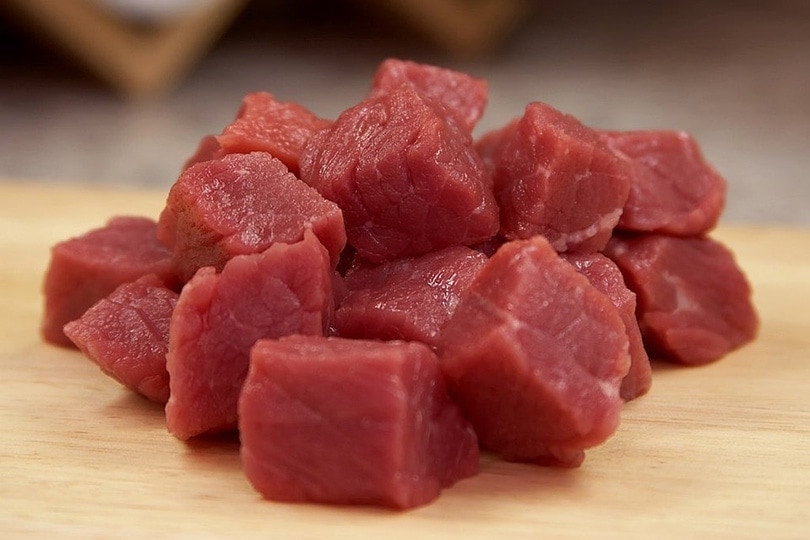
It’s no surprise that meat is on the list of superfoods for your cat. Lean meat, without excessive or visible fat, is a source of protein, iron, and B vitamins. You can give your cat cooked chicken, beef, or pork to help enhance their nutrition.
It is best to boil or bake the meat, provided that you don’t use sauces or seasonings. Grilled is also okay, but please avoid frying. Even with a minimal amount of oil or butter, the total extra calories will end up being too much for your cat.
8. Oily Fish
Cats can benefit from the omega-3 fatty acids in oily fish, especially anchovies, salmon, and sardines. Canned fish is okay as long as it is not preserved in oils. Fresh fish baked or grilled is another option. Just keep in mind that if you open a can, you may need to have some yourself to avoid feeding them too much. You can also freeze the leftovers for treats later on.
Just remember to defrost and serve them at room temperature. Cats can be fussy about frozen food.
Although tuna is a common treat for cats, it’s actually not one of the best options for your feline. Tuna contains mercury, and consuming too much of it can be toxic.
When you prepare fish for your feline, avoid adding sauces and spices.
9. Greek Yogurt
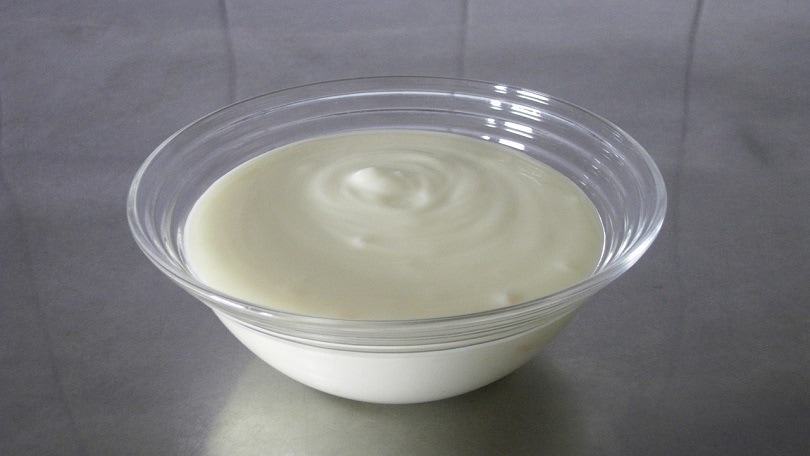
Greek yogurt is a good superfood for your cat. Greek yogurt contains protein, calcium, and probiotics that support your cat’s gut microbiome, improving their overall health, from their digestion to their brain. While most cats are lactose intolerant, most of the lactose in Greek yogurt is broken down during the culturing process. That said, if you do decide to give yogurt to your cat, start with a tiny amount to make sure it won’t bother sensitive stomachs.
Also, stick with plain Greek yogurt. It can be tempting to give them a bite of your strawberry-flavored yogurt or even vanilla, but you need to avoid both. Unsweetened, plain Greek yogurt is the best in this case.
10. Pumpkin
Pumpkin can be given to your cat cooked and cut into small pieces or puréed. Unlike other vegetables, canned pumpkin is safe for your cat provided that it’s completely plain without any additives, spices, or flavorings.
Not only is pumpkin a source of potassium and antioxidants, but it’s also an amazing source of fiber. It’s a good way to support your cat’s digestive system, alleviate constipation, and even prevent hairballs.
What Are Superfoods?
While the term “superfood” is not scientific, it is a way of recognizing, cataloging, or referring to foods packed with nutrition. They’re a well-known addition to most diets and give our bodies an extra health boost. In other words, they are natural food sources that provide specific nutrients. While they’re not quite good enough to take the place of a healthy, balanced diet, you won’t go wrong by adding them to your meal plan.
One easy way to do this is by feeding your cat fresh food since many recipes include these healthy additions in a complete and balanced diet catered especially to your kitty.
If you're looking for a balanced, highly nutritious cat food made with human-grade ingredients, take a closer look at Smalls. You can even save 40% on this premium cat food by entering code HEPPER24 at checkout!
What Human Foods Should Cats Not Eat?
It can be easy to assume that all superfoods are safe, but where cats are concerned, that isn’t the case. Cats have a different constitution, and their nutritional requirements aren’t the same as ours. While this list of superfoods contains several safe human foods for cats, there are many options that you should never give your feline at all.
Keep in mind that this list isn’t all-inclusive, and you should always make sure the food that you give your cat is safe for them before allowing them to eat it.
Now that you know what you can safely feed your cat, it’s just as important to find a bowl that supports their health and well-being. With whisker-friendly bowls and a wide tray to catch any spills, our Hepper NomNom Cat Bowl is our favorite option.
Final Thoughts
Cats might not be able to eat as much human food as dogs can, but they can still benefit from a few superfoods. Added to a balanced diet, the right superfood will give your feline a variety of health boosts, from digestive support to heart health and fur condition.
See Also:
- 4 Vitamin B12 Rich Foods for Cats: Vet Approved Options
- Can Cats Eat Asparagus? Health & Safety Tips
Featured Image Credit: guvo59, Pixabay




